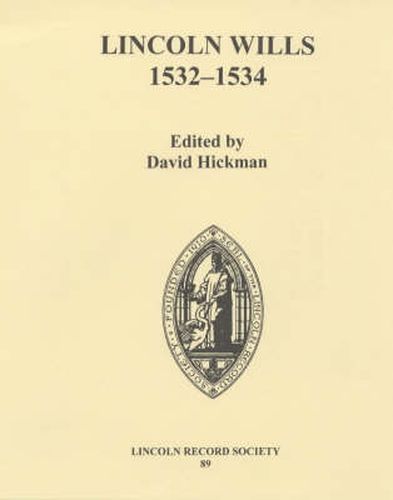Readings Newsletter
Become a Readings Member to make your shopping experience even easier.
Sign in or sign up for free!
You’re not far away from qualifying for FREE standard shipping within Australia
You’ve qualified for FREE standard shipping within Australia
The cart is loading…






Lincolnshire has an extensive archive of sixteenth-century probate material, preserved in the registers of the consistory and archdeaconry courts of Lincoln, the peculiar court of the Dean and Chapter of Lincoln Cathedral, and thearchdeaconry court of Stow. Unlike the wills proved by the archiepiscopal probate courts of Canterbury and York, those from Lincolnshire reflect a population of lower social status. The overwhelming majority come from the ranks of husbandmen, yeomen, or tradesmen, rather than the gentry. In this respect the wills offer a valuable source for the cultural and religious preoccupations of the ‘middling sort’ and those lower in the social spectrum on the eve of the Reformation. Equally, the detailed bequests of property, livestock and land provide an insight into the material culture and prosperity of the testators, as well as extensive genealogical and topographical information of interest to local, regional and family historians.
$9.00 standard shipping within Australia
FREE standard shipping within Australia for orders over $100.00
Express & International shipping calculated at checkout
Lincolnshire has an extensive archive of sixteenth-century probate material, preserved in the registers of the consistory and archdeaconry courts of Lincoln, the peculiar court of the Dean and Chapter of Lincoln Cathedral, and thearchdeaconry court of Stow. Unlike the wills proved by the archiepiscopal probate courts of Canterbury and York, those from Lincolnshire reflect a population of lower social status. The overwhelming majority come from the ranks of husbandmen, yeomen, or tradesmen, rather than the gentry. In this respect the wills offer a valuable source for the cultural and religious preoccupations of the ‘middling sort’ and those lower in the social spectrum on the eve of the Reformation. Equally, the detailed bequests of property, livestock and land provide an insight into the material culture and prosperity of the testators, as well as extensive genealogical and topographical information of interest to local, regional and family historians.